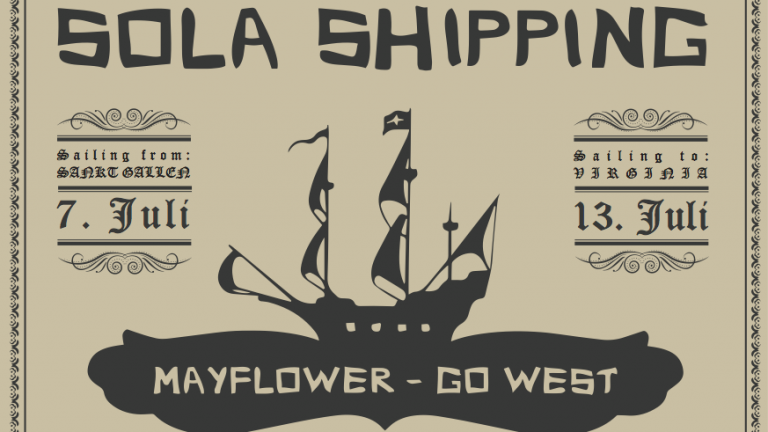For centuries, hunger, persecution and a lack of prospects were reasons to leave the familiar Europe and seek new fortune in the land of opportunity.
Settlers - with the somewhat more exciting name "Mayflower - Go West" makes an exciting theme for a youth camp or semester program. Here are some ideas including theater and a spiritual concept for a summer camp.
Possible history
The reasons for emigrating could hardly have been more diverse: they were Anabaptists who were persecuted in many places, gold diggers looking for their fortune, criminals who wanted a bit of freedom again, businessmen who wanted to realize their business ideas in America and simply impoverished farmers who had hopes of a new life in America. They set off as a large community and embarked on the ocean crossing by ship. Unfortunately, one Anabaptist was arrested as soon as he boarded the ship despite his disguise - when the ship full of emigrants was already 50 meters away from the shore, the Anabaptist tried to jump into the cold water and get onto the ship - to the astonishment of the visitors, along with all his clothes and suitcases.
To the astonishment of all the children, the same Baptist then swam into the next port - America - and was joyfully welcomed back into the community.
Instead of staying on the coast, the group decided to go further inland, despite the knowledge that there was danger from Indian tribes. Eventually, a beautiful place was discovered and the settler community decided to settle there. They quickly felt at home in the newly founded village, but the peace would not last forever. One morning, they discovered a letter with an Indian arrow attached to it in the center of the village. The settlers were asked to leave the newly found land, as it belonged to the sacred Indian land. "To arms and into battle" was the motto for many. But an in-depth input from our village priest showed the village leaders that fighting was not Jesus' answer. So, despite resistance from within their own ranks, the village leaders decided against fighting and in favor of a peaceful path if possible.
Nonetheless, a group of the older young children set out that night to attack the Indians. But instead of attacking them, they were surrounded and taken prisoner. Enraged by the lack of consent, the remaining settlers received a message and were invited to a meeting with the Indians. The Indians were initially unwilling to release the captured settlers. It was only when the settlers tried to give the Indians presents that one prisoner was released each time. In the end, the settlers sacrificed all their possessions so that all the settlers were free again. Ransomed, they then went back to the village together.
Without their possessions, however, the settlers were faced with a new problem: what should they eat? Everything they had was now in the hands of the Indians. Although a desperate farmer had dug up a tuber in the evening and eaten it, his shouting the next morning did not indicate that this tuber was actually edible. Only after the tubers had been boiled in water for a few minutes did they taste quite good, whether for breakfast with jam, for lunch with various cheeses or for dinner cut into long sticks and bathed in hot oil. This miracle tuber - which was then called the potato - saved the settlers' lives.
With their bellies full, however, the settlers realized something else: what use is it if they have the potato here, but back home in Europe, some people are starving? The village leaders therefore decided to break off the settlement and go back to Europe, where they could preach the potato with joy and a full stomach. And so the colorful community of settlers went back to Europe and proclaimed the strength of the potato throughout the land.
Some parts of this camp story probably happened in the same or a similar way. However, the ideas can be freely added to and adapted. You can relive the camp, including photos, on the blog.
The spiritual concept and the theater manual are available for download.
Evaluation of the camp theme
The camp theme is free from any existing story and so there are no limits to creativity. It is particularly exciting that so many characters can be incorporated. It is also good that many parallels can be drawn directly into the life of faith and that Bible values can be experienced.
Credits
Cover picture, theater concept and spiritual concept: Provided by Jungschar Stami, Goldbrunnen and Kirche Bild, St. Gallen
Content may be automatically translated. Help improve the quality of the translation with your editing!



